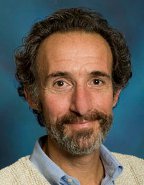Study Investigators
Leslie Leve, Ph.D.
Principal Investigator
Professor, University of Oregon
Research Scientist, Prevention Science Institute
 Dr. Leslie Leve received her doctoral degree in Developmental Psychology from the University of Oregon in 1995. She is currently a Professor in Counseling Psychology and Human Services in the College of Education at the University of Oregon, and a Senior Fellow at the Oregon Social Learning Center. Her research interests are in the area of child development, with a focus on understanding how families can best promote the healthy and positive adjustment of children and adolescents. Her research has included preventive intervention research with youth in foster care and with adolescents in the juvenile justice system, as well as studies of twins, adoptive families, and birth families. She has served as an investigator on over a dozen research grants funded by the National Institutes of Health. Currently, she leads the Early Growth and Development Study-School project and co-leads the Early Growth and Development Study-Mental Health project. She also directs a randomized intervention trial designed to prevent the onset of problem behaviors among girls in foster care as they enter middle school and is an investigator on several related intervention projects with foster care and juvenile justice populations. She is a member of the Editorial Board for the Adoption & Fostering, Development and Psychopathology, and the Journal of Child Psychology & Psychiatry. She serves on the Board of Directors for the Society for Prevention Research.
Dr. Leslie Leve received her doctoral degree in Developmental Psychology from the University of Oregon in 1995. She is currently a Professor in Counseling Psychology and Human Services in the College of Education at the University of Oregon, and a Senior Fellow at the Oregon Social Learning Center. Her research interests are in the area of child development, with a focus on understanding how families can best promote the healthy and positive adjustment of children and adolescents. Her research has included preventive intervention research with youth in foster care and with adolescents in the juvenile justice system, as well as studies of twins, adoptive families, and birth families. She has served as an investigator on over a dozen research grants funded by the National Institutes of Health. Currently, she leads the Early Growth and Development Study-School project and co-leads the Early Growth and Development Study-Mental Health project. She also directs a randomized intervention trial designed to prevent the onset of problem behaviors among girls in foster care as they enter middle school and is an investigator on several related intervention projects with foster care and juvenile justice populations. She is a member of the Editorial Board for the Adoption & Fostering, Development and Psychopathology, and the Journal of Child Psychology & Psychiatry. She serves on the Board of Directors for the Society for Prevention Research.
Jenae Neiderhiser, Ph.D.
Principal Investigator
Liberal Arts Research Professor of Psychology, The Pennsylvania State University
 Dr. Neiderhiser received her doctoral degree in Human Development and Family Studies at Pennsylvania State University where she is currently a Professor of Psychology. Since 1988, she has been involved in studies looking at twins, siblings and adoptees in an effort to understand how children and their families influence each other. The studies that have been used to examine these research questions include the following three sets of studies. The Nonshared Environment in Adolescent Development (NEAD) project and the Young Adult Sibling Study (YASS) is a longitudinal study of 720 twin and sibling pairs in two parent families with both parents and both twins/siblings participating followed from when the twins/siblings were in middle adolescence to young adulthood. The Twin/Offspring Study in Sweden (TOSS) is a study of 909 pairs of twins who are parents of at least one adolescent child and includes twin parents, one child per twin and the spouse/partner of the twin. Finally, the Early Growth and Development Study (EGDS) is a prospective, longitudinal study of 559 sets of adopted children, their adoptive families and birth parents. All of these studies include extensive assessment of the environment within the household, interpersonal relationships, adult and child adjustment, temperament and personality and other related measures. DNA has also been collected or will be collected for these samples. Her work has been published in journals specializing in developmental psychology and family relations. Dr. Neiderhiser's primary role on the study is the supervision and coordination of the recruitment team.
Dr. Neiderhiser received her doctoral degree in Human Development and Family Studies at Pennsylvania State University where she is currently a Professor of Psychology. Since 1988, she has been involved in studies looking at twins, siblings and adoptees in an effort to understand how children and their families influence each other. The studies that have been used to examine these research questions include the following three sets of studies. The Nonshared Environment in Adolescent Development (NEAD) project and the Young Adult Sibling Study (YASS) is a longitudinal study of 720 twin and sibling pairs in two parent families with both parents and both twins/siblings participating followed from when the twins/siblings were in middle adolescence to young adulthood. The Twin/Offspring Study in Sweden (TOSS) is a study of 909 pairs of twins who are parents of at least one adolescent child and includes twin parents, one child per twin and the spouse/partner of the twin. Finally, the Early Growth and Development Study (EGDS) is a prospective, longitudinal study of 559 sets of adopted children, their adoptive families and birth parents. All of these studies include extensive assessment of the environment within the household, interpersonal relationships, adult and child adjustment, temperament and personality and other related measures. DNA has also been collected or will be collected for these samples. Her work has been published in journals specializing in developmental psychology and family relations. Dr. Neiderhiser's primary role on the study is the supervision and coordination of the recruitment team.
Jody Ganiban, PhD.
Principal Investigator
Associate Professor, Department of Psychology, George Washington University
 Dr. Ganiban’s research examines the impact of family and child characteristics on development. She has conducted research within a variety of populations, including adoptive families, stepfamilies, twins, premature infants, toddlers with Down syndrome, maltreated children, and toddlers with feeding disorders. Dr. Ganiban has also been involved in studies that examine environmental and genetic contributions to personality and family relationships. Her current projects explore the influence of families’ emotional climates on children’s emergent personalities and adjustment, the impact of children on parents, and risk factors for feeding problems and obesity. Recent publications can be accessed on the George Washington University’s website.
Dr. Ganiban’s research examines the impact of family and child characteristics on development. She has conducted research within a variety of populations, including adoptive families, stepfamilies, twins, premature infants, toddlers with Down syndrome, maltreated children, and toddlers with feeding disorders. Dr. Ganiban has also been involved in studies that examine environmental and genetic contributions to personality and family relationships. Her current projects explore the influence of families’ emotional climates on children’s emergent personalities and adjustment, the impact of children on parents, and risk factors for feeding problems and obesity. Recent publications can be accessed on the George Washington University’s website.
David Reiss, MD
Principal Investigator
Clinical Professor, Yale Child Study Center
 Dr. Reiss received his medical training and specialty training in psychiatry at Harvard Medical School. In over 40 years of medical practice, Dr. Reiss worked with many families, children and adults to help them achieve their full potential and worked with many parents and children to help them strengthen their relationships with one another. Dr. Reiss is now on the faculty of the Yale Child Study Center and works as consultant to the National Institutes of Health. Dr. Reiss' research, along with many of his colleagues in the United States and in Europe, centers on understanding the relationships between genetic and social influences on the development of toddlers, adolescents and adults. He is now working with an international team of researchers to develop programs for helping adopting families based on his research, and those of others, on the role of genetic factors and of parenting in promoting healthy child development. Dr. Reiss' research has won many awards including the MERIT award from NIMH, the Burgess Award from the National Council on Family Relationships and the Adolf Meyer Award from the American Psychiatric Association. Dr. Reiss' research has been published in 180 papers and 7 books including a recent book on genetic and social factors in adolescent development, The Relationship Code (with Neiderhiser, Hetherington and Plomin, Cambridge, MA: Harvard University Press, 2000).
Dr. Reiss received his medical training and specialty training in psychiatry at Harvard Medical School. In over 40 years of medical practice, Dr. Reiss worked with many families, children and adults to help them achieve their full potential and worked with many parents and children to help them strengthen their relationships with one another. Dr. Reiss is now on the faculty of the Yale Child Study Center and works as consultant to the National Institutes of Health. Dr. Reiss' research, along with many of his colleagues in the United States and in Europe, centers on understanding the relationships between genetic and social influences on the development of toddlers, adolescents and adults. He is now working with an international team of researchers to develop programs for helping adopting families based on his research, and those of others, on the role of genetic factors and of parenting in promoting healthy child development. Dr. Reiss' research has won many awards including the MERIT award from NIMH, the Burgess Award from the National Council on Family Relationships and the Adolf Meyer Award from the American Psychiatric Association. Dr. Reiss' research has been published in 180 papers and 7 books including a recent book on genetic and social factors in adolescent development, The Relationship Code (with Neiderhiser, Hetherington and Plomin, Cambridge, MA: Harvard University Press, 2000).
Misaki Natsuaki, Ph.D
Investigator
Assistant Professor, University of California, Riverside
 Dr. Natsuaki received her doctoral degree in Human Development from University of California, Davis in 2006. She started her developmental research with Xiaojia Ge, Ph.D., studying developmental psychopathology during adolescence. After completing her postdoctoral training at the Institute of Child Development, University of Minnesota, she joined the Department of Psychology at University of California, Riverside, as an associate professor. Her research interest focuses on developmental psychopathology during childhood and adolescence, with a particular focus on development of emotional and behavioral problems, biological and contextual interaction, and pubertal transition.
Dr. Natsuaki received her doctoral degree in Human Development from University of California, Davis in 2006. She started her developmental research with Xiaojia Ge, Ph.D., studying developmental psychopathology during adolescence. After completing her postdoctoral training at the Institute of Child Development, University of Minnesota, she joined the Department of Psychology at University of California, Riverside, as an associate professor. Her research interest focuses on developmental psychopathology during childhood and adolescence, with a particular focus on development of emotional and behavioral problems, biological and contextual interaction, and pubertal transition.
Daniel Shaw, Ph.D.
Investigator
Professor of Psychology and Psychiatry, University of Pittsburgh
 Dr. Shaw, who is Professor and Chair in the Department of Psychology at the University of Pittsburgh, received his doctoral training in Clinical and Developmental Psychology at the University of Virginia. Since 1988, he worked as a faculty member in the Clinical and Developmental programs at Pitt. During the past two decades, he has led several studies examining the development and prevention of early problem behavior, with a primary interest in tracing the development and preventing antisocial behavior. He currently leads or co-directs four NIH-funded projects, in addition to being awarded three successive Research Scientist Awards (1999-2014) by NIMH and NIDA. For his work on the development of young children's conduct problems, he was awarded the Boyd McCandless Young Scientist Award by APA's Division of Developmental Psychology. He also is currently Associate Editor of the journal Development and Psychopathology, has served on several editorial review boards of journals (e.g., Child Development, Developmental Psychology, Development and Psychopathology) and expert panels convened by NIH, and published extensively on risk factors associated with conduct problems in early childhood. Recent papers can be accessed on his Project's Web site: http://www.pitt.edu/~ppcl.
Dr. Shaw, who is Professor and Chair in the Department of Psychology at the University of Pittsburgh, received his doctoral training in Clinical and Developmental Psychology at the University of Virginia. Since 1988, he worked as a faculty member in the Clinical and Developmental programs at Pitt. During the past two decades, he has led several studies examining the development and prevention of early problem behavior, with a primary interest in tracing the development and preventing antisocial behavior. He currently leads or co-directs four NIH-funded projects, in addition to being awarded three successive Research Scientist Awards (1999-2014) by NIMH and NIDA. For his work on the development of young children's conduct problems, he was awarded the Boyd McCandless Young Scientist Award by APA's Division of Developmental Psychology. He also is currently Associate Editor of the journal Development and Psychopathology, has served on several editorial review boards of journals (e.g., Child Development, Developmental Psychology, Development and Psychopathology) and expert panels convened by NIH, and published extensively on risk factors associated with conduct problems in early childhood. Recent papers can be accessed on his Project's Web site: http://www.pitt.edu/~ppcl.
Study Collaborators
Gordon Harold, Ph.D
Collaborator
Professor of Psychology, University of Sussex
 Gordon Harold, PhD, is the Andrew and Virginia Rudd Chair in Psychology and director of the Rudd Centre for Adoption Research and Practice at the University of Sussex. He received his PhD from Cardiff University in 1998 and was appointed lecturer in psychology the same year and professor of psychology in 2008. He holds appointments as honorary professor of law at Cardiff University, is an associate member of the MRC Social, Genetic and Developmental Psychiatry Centre, at the Institute of Psychiatry, Kings College London, and the MRC Centre for Neuropsychiatric Genetics and Genomics at Cardiff University. His primary research interests focus on the role of the family as a context for understanding children's normal and abnormal psychological development, the interplay between genetic and family relationship factors and children’s psychological development, and policy and practice applications of research relating to family influences on children. He is a consultant and advisor to several government departments in the UK and internationally.
Gordon Harold, PhD, is the Andrew and Virginia Rudd Chair in Psychology and director of the Rudd Centre for Adoption Research and Practice at the University of Sussex. He received his PhD from Cardiff University in 1998 and was appointed lecturer in psychology the same year and professor of psychology in 2008. He holds appointments as honorary professor of law at Cardiff University, is an associate member of the MRC Social, Genetic and Developmental Psychiatry Centre, at the Institute of Psychiatry, Kings College London, and the MRC Centre for Neuropsychiatric Genetics and Genomics at Cardiff University. His primary research interests focus on the role of the family as a context for understanding children's normal and abnormal psychological development, the interplay between genetic and family relationship factors and children’s psychological development, and policy and practice applications of research relating to family influences on children. He is a consultant and advisor to several government departments in the UK and internationally.
Phillip A. Fisher, Ph.D
Collaborator
Professor and Research Scientist, University of Oregon

Phil Fisher, PhD, studies the effects of early stressful experiences (trauma, maltreatment, poverty) on children’s neurobiological and psychological development, and in designing and evaluating prevention and treatment programs for improving children’s functioning in areas such as attachment to caregivers, relationships with peers, and functioning in school. He is also interested in the brain’s plasticity in the context of therapeutic interventions. Particular areas of neurobiological functioning studied by Dr. Fisher are the hypothalamic-pituitary-adrenal axis, the prefrontal cortex, and neural reward pathways. His laboratory, the Stress Neurobiology and Prevention lab (SNAP), includes graduate students, postdoctoral fellows, and other researchers with similar interests. He is also Science Director for the National Forum on Early Childhood Policy and Programs and a Senior Fellow at the Center on the Developing Child, both based at Harvard University.Dr. Fisher is the recipient of the 2012 Society for Prevention Research Translational Science Award. He obtained his Ph.D. from the University of Oregon in 1993.
Rand Conger, Ph.D.
Collaborator
Professor of Human Development and Family Studies, University of California, Davis
 Dr. Conger received his doctoral degree in Sociology at the University of Washington. Dr. Conger has held faculty positions in several universities including the University of Georgia, the University of Illinois at Urbana-Champaign, and Iowa State University, where he was the founding Director of the Institute for Social and Behavioral Research. From the beginning of his career, Dr. Conger has pursued research designed to increase understanding of how families promote the health and well being of individual family members, including during stressful times, such as downturns in the economy. As part of his research, Dr. Conger developed the Family Stress Model. This model describes the processes by which stressful events and conditions influence parents and children. It also looks at family processes that promote resiliency. Dr. Conger's work has been replicated in other studies and the findings have influenced the development of educational programs that have been shown to help parents reduce a child's risk for substance use, emotional problems, and delinquent behavior. Dr. Conger has published over 200 journal articles, book chapters and books. One of his recent publications is Conger, R. D., & Donnellan, M.. (2007). An interactionist perspective on the socioeconomic context of human development. Annual Review of Psychology,58, 175-199. He also has received awards for his research from the American Sociological Association, the National Council on Family Relations, the International Association for Relationship Research, and the National Association for Rural Mental Health. He is an elected Fellow of the American Psychological Association and the National Council on Family Relations.
Dr. Conger received his doctoral degree in Sociology at the University of Washington. Dr. Conger has held faculty positions in several universities including the University of Georgia, the University of Illinois at Urbana-Champaign, and Iowa State University, where he was the founding Director of the Institute for Social and Behavioral Research. From the beginning of his career, Dr. Conger has pursued research designed to increase understanding of how families promote the health and well being of individual family members, including during stressful times, such as downturns in the economy. As part of his research, Dr. Conger developed the Family Stress Model. This model describes the processes by which stressful events and conditions influence parents and children. It also looks at family processes that promote resiliency. Dr. Conger's work has been replicated in other studies and the findings have influenced the development of educational programs that have been shown to help parents reduce a child's risk for substance use, emotional problems, and delinquent behavior. Dr. Conger has published over 200 journal articles, book chapters and books. One of his recent publications is Conger, R. D., & Donnellan, M.. (2007). An interactionist perspective on the socioeconomic context of human development. Annual Review of Psychology,58, 175-199. He also has received awards for his research from the American Sociological Association, the National Council on Family Relations, the International Association for Relationship Research, and the National Association for Rural Mental Health. He is an elected Fellow of the American Psychological Association and the National Council on Family Relations.
Laura Scaramella, Ph.D.
Collaborator
Professor of Psychology, University of New Orleans
 Dr. Scaramella received her doctoral degree from the University of Arizona in Child Development and Family Studies and is currently a Professor of Psychology at the University of New Orleans. Her research focuses on understanding genetic and environmental influences on the emergence of problem behaviors during childhood and adolescence. Dr. Scaramella currently leads a study of low income mothers with a Head Start enrolled child and a younger, toddler-aged child. This study focuses on understanding environmental influences on children’s development of problem behaviors by considering how mothers’ parenting influences children’s sibling relationships and social development over time. In addition to the Early Growth and Development Study, Dr. Scaramella is a co-investigator on a grant headed by Dr. Rand Conger which examines genetic and environmental influences on facets of personality and resilience. Currently, she is a member of several editorial boards (Developmental Psychology, Journal of Abnormal Child Psychology and Journal of Early Adolescence) and is a standing member of the Psychosocial Development, Risk and Prevention study section of the NIH Center for Scientific Review. In 2009, Dr. Scaramella was awarded the College of Agriculture and Life Sciences Alumni Achievement Award from the University of Arizona.
Dr. Scaramella received her doctoral degree from the University of Arizona in Child Development and Family Studies and is currently a Professor of Psychology at the University of New Orleans. Her research focuses on understanding genetic and environmental influences on the emergence of problem behaviors during childhood and adolescence. Dr. Scaramella currently leads a study of low income mothers with a Head Start enrolled child and a younger, toddler-aged child. This study focuses on understanding environmental influences on children’s development of problem behaviors by considering how mothers’ parenting influences children’s sibling relationships and social development over time. In addition to the Early Growth and Development Study, Dr. Scaramella is a co-investigator on a grant headed by Dr. Rand Conger which examines genetic and environmental influences on facets of personality and resilience. Currently, she is a member of several editorial boards (Developmental Psychology, Journal of Abnormal Child Psychology and Journal of Early Adolescence) and is a standing member of the Psychosocial Development, Risk and Prevention study section of the NIH Center for Scientific Review. In 2009, Dr. Scaramella was awarded the College of Agriculture and Life Sciences Alumni Achievement Award from the University of Arizona.
Former Collaborators
Xiaojia Ge, Ph.D.
Investigator
University of Minnesota. Sadly, he passed away in August, 2009.
 Xiaojia Ge was a Professor at Institute of Child Development, University of Minnesota, Twin Cities. His research interests were on emotional and behavioral development of children and adolescents. He was conducting research on the influence of pubertal transition on adolescent emotional development and on interaction between biological and psychosocial factors in child development.
Xiaojia Ge was a Professor at Institute of Child Development, University of Minnesota, Twin Cities. His research interests were on emotional and behavioral development of children and adolescents. He was conducting research on the influence of pubertal transition on adolescent emotional development and on interaction between biological and psychosocial factors in child development.
John Reid, Ph.D
Investigator
Oregon Social Learning Center. Sadly, he passed away in February, 2012.
 Dr. Reid was the Director of the Oregon Prevention Research Center (OPRC), which was founded in 1990. The mission of the OPRC is to develop and test prevention programs that promote prosocial behavior in the school, home, and community. Dr. Reid's reputation has grown since he received his doctoral degree from the University of Oregon in 1967, in large part through his investigation of family factors in prevention and promotion, his specialization of observation methodologies in randomized trials, and his development of several notable school-based randomized intervention trials. Dr. Reid's prevention program, Linking the Interests of Families and Teachers, has received national recognition as a Promising Program for Safe and Drug Free Schools. Dr. Reid served on private, state, and federal task forces to try to determine the most effective intervention for delinquency and antisocial behavior, and he chaired several National Institute of Mental Health (NIMH) grant-evaluation committees. During the past three years, Dr. Reid served on several national policy committees, including the National Academy of Sciences Committee on the Representation of Minority Children in Special Education from 1999-2002, the Planning Board and Peer Reviewer section of the Surgeon General's Report on Youth Violence, and as a Contributing Expert to the NIMH report, Taking Stock of Risk Factors for Child/Youth Externalizing Behavior Problems.
Dr. Reid was the Director of the Oregon Prevention Research Center (OPRC), which was founded in 1990. The mission of the OPRC is to develop and test prevention programs that promote prosocial behavior in the school, home, and community. Dr. Reid's reputation has grown since he received his doctoral degree from the University of Oregon in 1967, in large part through his investigation of family factors in prevention and promotion, his specialization of observation methodologies in randomized trials, and his development of several notable school-based randomized intervention trials. Dr. Reid's prevention program, Linking the Interests of Families and Teachers, has received national recognition as a Promising Program for Safe and Drug Free Schools. Dr. Reid served on private, state, and federal task forces to try to determine the most effective intervention for delinquency and antisocial behavior, and he chaired several National Institute of Mental Health (NIMH) grant-evaluation committees. During the past three years, Dr. Reid served on several national policy committees, including the National Academy of Sciences Committee on the Representation of Minority Children in Special Education from 1999-2002, the Planning Board and Peer Reviewer section of the Surgeon General's Report on Youth Violence, and as a Contributing Expert to the NIMH report, Taking Stock of Risk Factors for Child/Youth Externalizing Behavior Problems.





